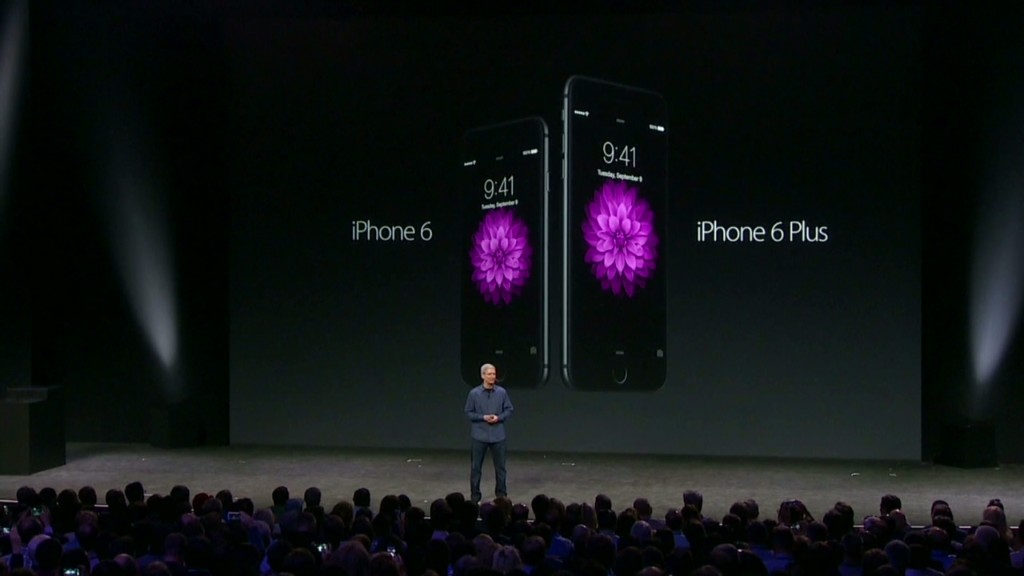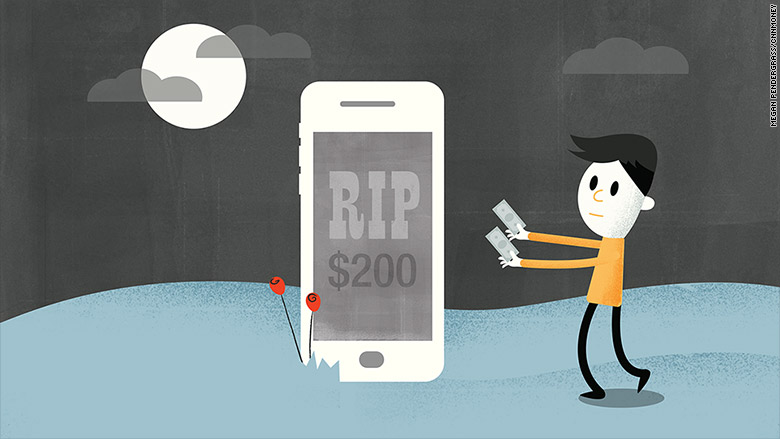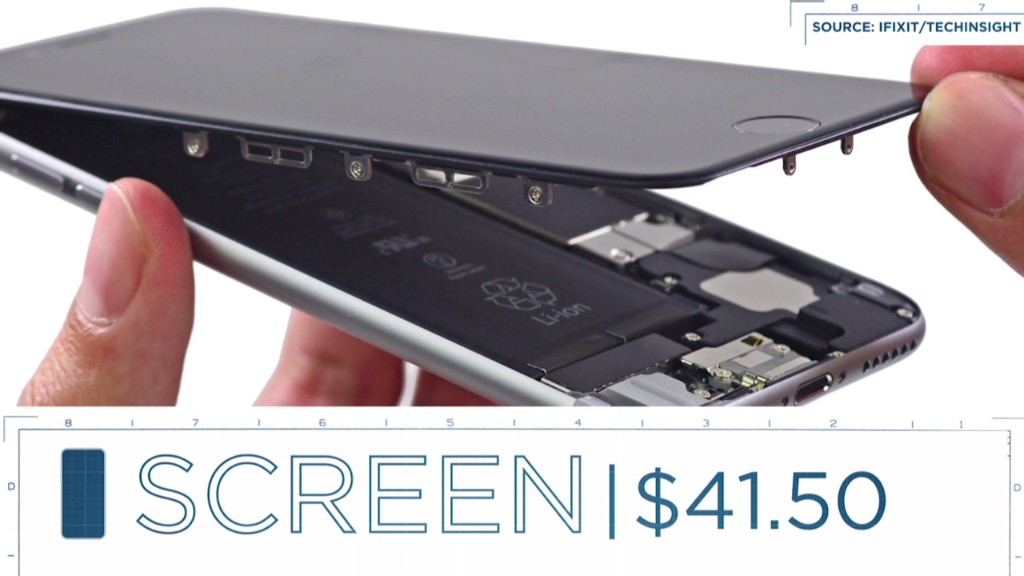
The $200 iPhone is toast.
Until recently, buying a smartphone was a simple two-step process: Hand your wireless carrier $200 and sign a two-year contract.
Though a bevy of new contract-free cell phone plans have popped up over the past year, inspired by T-Mobile's "Uncarrier" strategy, you could still walk into an Apple Store and get an iPhone the "old-fashioned" way: pay $200, sign on the dotted line, walk away with an iPhone.
Not for much longer.
AT&T (T) is phasing out the two-year contract at third-party retailers, including the Apple Store, as part of a new plan to promote its contract-free "Next" program, according to a source with knowledge of the strategy. Two-year contracts will now only be available at AT&T stores -- online or brick and mortar.
"Our customers increasingly choose AT&T Next, so we're responding by featuring Next as the most prominent way to get a new smartphone at our national retailers and local dealers," said Emily Edmonds, spokeswoman for AT&T, who declined to comment on the Apple Store. "Customers who would rather have a two-year contract still have that option."
Two-thirds of AT&T customers are choosing Next over two-year contracts. And AT&T Wireless CEO Ralph de la Vega told Re/Code this week that he thinks all two-year contracts are going to be phased out eventually.
Determining whether a two-year contract is more or less expensive than a contract-free plan requires a bit of tricky math -- it depends on which phone you buy, how much of a down payment you offer and how much data you use. As a general rule, two-year contracts tend to be the less expensive route if you're not a data hog. The more data you use, the more going contract-free makes sense.
Related: The cell phone data scam

AT&T isn't alone in pushing contract-free plans. Verizon (VZ) too is planning on dropping two-year contracts for iPhones purchased at the Apple Store, according to 9to5Mac.
The company has openly discussed the possibility of ending two-year contracts entirely.
Last month, Verizon's operations chief John Stratton told investors at a Jeffries conference that contract-free smartphone purchases are incredibly popular with customers, and the company could choose to streamline its offerings for clarity's sake. Verizon expects 50% of new smartphone sales to be purchased contract-free as part of its "Edge" program by the end of 2015.
"As we get to a tipping point with customers, if there is an obvious push that says, hey, we should go Edge only, we would do that," Stratton said. "We are going to let the market determine that over the next couple of months."
Stratton said Verizon is "neutral" on whether customers choose two-year contracts or the Edge program. But Verizon spokeswoman Debra Lewis acknowledged that the company is promoting Edge more heavily than traditional two-year contracts, touting the benefits of going contract-free (interest-free monthly equipment payments, lower monthly access fees, and the ability to upgrade at any time once the phone is paid off).
Lewis declined to comment on the company's plans for the Apple (AAPL) Store.
Sprint (S) also still offers two-year contracts, but the company has been strongly pushing its new leasing option, in which customers borrow a phone for two years and pay less than if they purchased it. Leasing makes up about a third of the company's smartphone sales, Sprint said.
Joseph Euteneuer, the company's chief financial officer, said at a JPMorgan conference last month that Sprint expects leasing to eventually dominate sales. But he said he is watching customers' reactions and will determine what to do about two-year contracts based on demand.
T-Mobile (TMUS), clearly starting a trend, hasn't offered two-year contracts since 2013. So depending on how you feel about your $200 iPhone, you've got T-Mobile to thank -- or blame.


